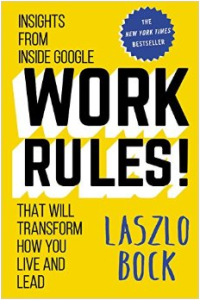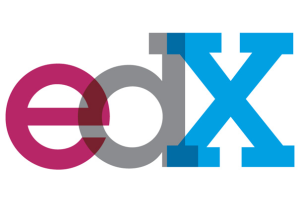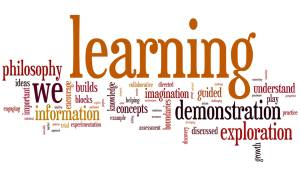
Books about business and leadership typically disappoint. Not so Work Rules! by Laszlo Bock, who heads hiring and culture for Google.
Below are insights from the book, followed with similarities to our learning community at at Acton Academy:
1. Attract the best people, trust them and believe they will do great things. Micromanagement doesn’t work.
Google aspires to change the world for decades to come, sets high standards in hiring and trusts its people to execute. At Acton Academy, we believe each person who enters our doors will change the world in a profound way. We use our call-to-greatness and a series of difficult challenges to attract extraordinary parents and Eagles. Then we trust the Eagles to run a Learner Driven Community.
2. Ask people to set challenging SMART goals and make all personal achievements (and failures) transparent. What matters in the end is making significant progress towards solving a real world problem, with limited resources.
As a Googler, you set ambitious individual and team goals and publish them for all to see. At Acton Academy, each Eagle sets highly visible weekly (and often daily) SMART goals; measures and publishes how many intense, focused hours of work he or she spends in each area, whether or not individual and team goals were achieved.
3. Relentlessly eliminate unnecessary effort and overhead and guard against the micro-managers who misuse power.
Managers at Google do not have the power to hire, fire or set compensation: the lure of hierarchy and power is simply too corrupting. At Acton Academy, adults are granted the respect due every person, but may not teach to a test or control students. Eagles experience the joy of learning through self governance; worthy challenges and engaging experts, coaches and mentors of all ages, all a part of their Hero’s Journey.
4. Use the “wisdom of the crowd” to judge excellence and when it’s time to reward and promote.
At Google, salaries are low; bonuses, stock options and advancement are based on surveys of those who work with, under and above an individual. At Acton Academy, we use 360 surveys and peer reviews to judge excellent work against crowd sourced rubrics and world class examples, as well as to measure leadership and character. Studio-mates know far better than adults who deserves to be praised, rewarded and promoted.
5. Separate extrinsic rewards from critique and coaching .
The research is clear – if you reward with money, you discourage more powerful and deeper motivations. At Google, performance reviews and coaching are separate from compensation discussions. At Acton Academy, we track points and force rank submissions to encourage friendly competition. But we spend far more time on the importance of a growth mindset, the Hero’s Journey and helping each individual move forward on his or her journey, as part of a larger learning community.
Do we really trust tightly knit young heroes to run their own Learner Driven Community, free from the daily control of adults? Can they possibly inspire thousands of young heroes around the world to do the same? Hard to imagine.
But who would have guessed Google would have 53,600 employees ten years ago?




